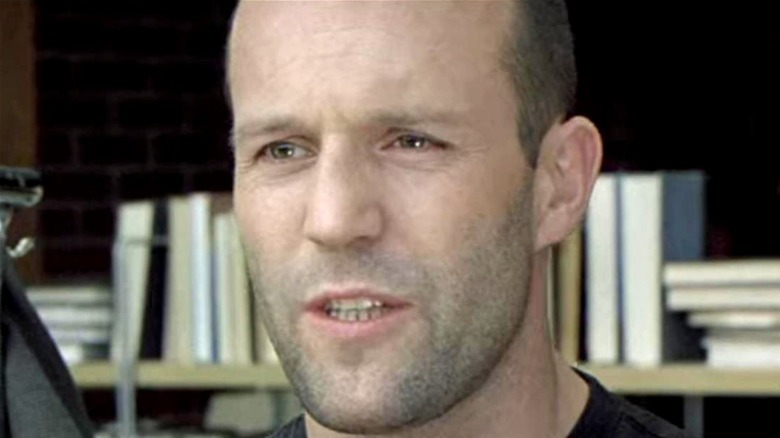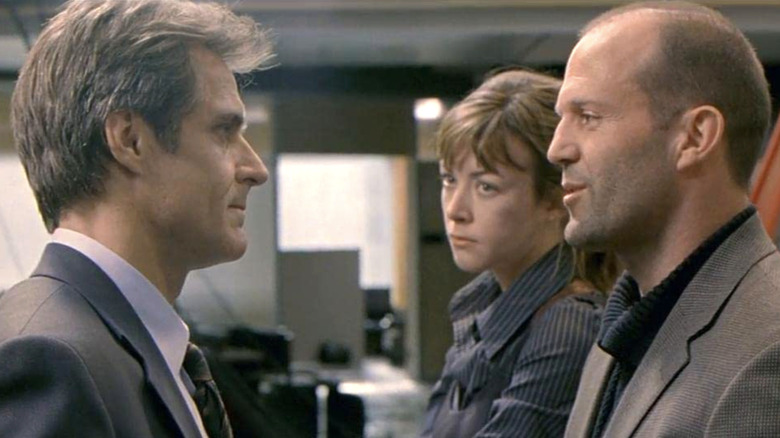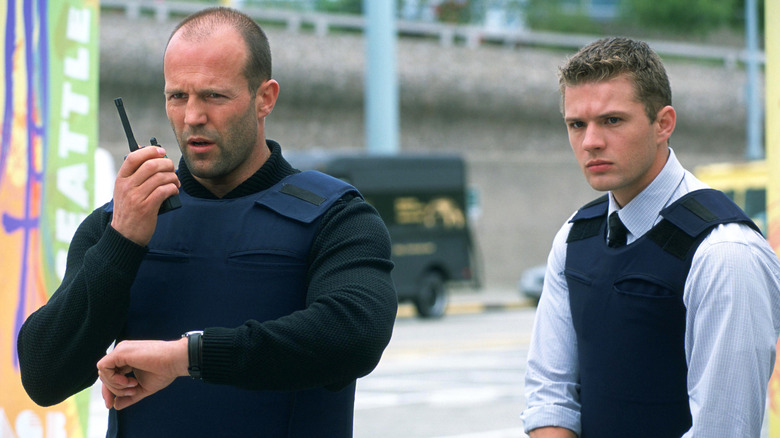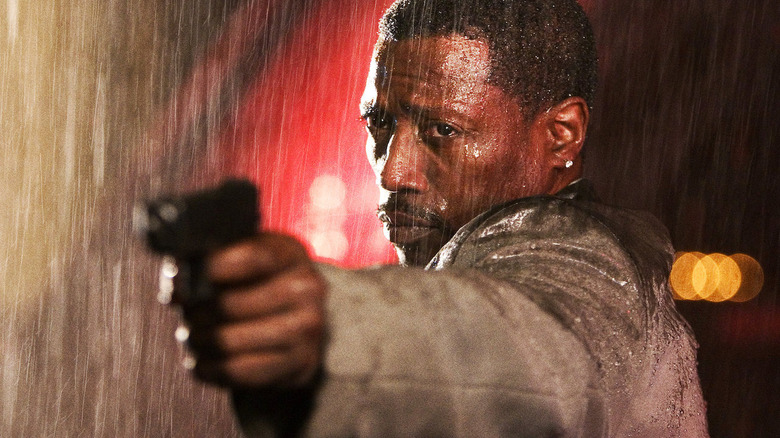The Ending Of Jason Statham's Chaos Explained
While Netflix delivers new content all the time, the streaming platform also constantly adds old and lesser known movies to the catalog, giving them a wider audience and a chance to shine. One of the most recent examples of this is a movie called "Chaos." Starring Jason Statham, Ryan Phillippe, and Wesley Snipes, the movie is a tense crime thriller about a police officer who is suspended after accidentally killing an innocent in a hostage situation, before being brought back to help catch a crew of bank robbers. Although the movie is credited as being released in 2005, "Chaos" actually didn't reach an American audience until a few years later, when it was finally released on DVD (The Movie Blog).
Statham plays Seattle PD Detective Quentin Conners, whose partner Jason York (Snipes), is fired after the hostage situation, while Conners is suspended. But soon after, a crew of skilled criminals take hostages at a bank, with the leader demanding to only negotiate with Conners. Brought back to deal with this one case, Conners is partnered with a young rookie named Detective Shane Dekker (Phillippe), but they soon find out that their values don't exactly mesh well. As they continue to track down the robbers, they slowly grow to trust one another more, until everything Dekker thinks he knows about Conners and the police department is revealed to be completely wrong.
For those who were left with a few questions about how the crime drama ends, here's the ending of "Chaos" explained.
Nothing is as it seems
At the end of "Chaos," Conners participates in a stakeout of the robbers, but unfortunately it doesn't end well. A shootout erupts followed by a huge explosion, after which Conners is presumed killed. Dekker is distraught at the news but continues to investigate, discovering that the man named Lorenz that they have been chasing this whole time is actually York. A flashback then reveals that York shot the hostage first in the incident that kickstarts the movie's events. Dekker then tracks York down at a diner, leading the former police officer to take a person hostage. In the end, Dekker catches up to York and kills him.
While everything seems to be over and done with after York's death, one small detail leads Dekker to realize that Conners is also involved with the bank robberies, challenging everything he think he knows about the man. The mystery quickly unravels as he keeps investigating, and soon enough Dekker discovers just how elaborate the plan really was, along with all the signs of Conners's guilt that he missed.
Conners fakes his death and flees with the money
Everything comes together when Dekker finds the book "Chaos: Making a New Science" by James Gleick in Conners's house, calling back to the first bank robbery and hostage situation, when York can't stop talking about chaos theory. At the time, Conners pretends to not understand any of it, but as Dekker finds out, that's very far from the truth. Connecting the rest of the dots, Dekker realizes that Conners faked his own death in the explosion and is now fleeing with the money, and he tries to chase him down at the airport.
Unfortunately, Dekker is too late, and he and his former partner talk on the phone. Conners taunts Dekker with the knowledge that he tricked him and got away, before hanging up on Dekker. The movie then shows Conners walking over to a private jet and getting on, now completely in disguise, before casually drinking champagne. The ending never really addresses York's death, but it can be assumed that he truly dies by Dekker's hands. If that didn't happen, he would've likely fled on the same plane with Conners.
Chaos Theory connects the whole story
As the title suggests, the whole story of "Chaos" is supposedly connected by chaos theory, or a complicated scientific idea that there are hidden patterns in seemingly unpredictable events. Chaos theory also includes the idea of the "butterfly effect," which explores how seemingly inconsequential events and choices can have major effects on the future. "Chaos" mainly focuses on the belief that there are hidden connections in what appear to be random, uncontrollable events, as is the case with the bank robberies that Conners and Dekker investigate.
Everything that happens initially appears to be just a part of the investigation, but in reality, as it is revealed in the final few scenes of the film, everything is actually connected and planned out by Conners and York (at least to a point). "Chaos" doesn't really go too deep into chaos theory, and this aspect of the film is mainly used to surprise Dekker and audiences by highlighting just how intricate Conners's plan is, so well organized that no one ever realizes what is going on until it's too late.



